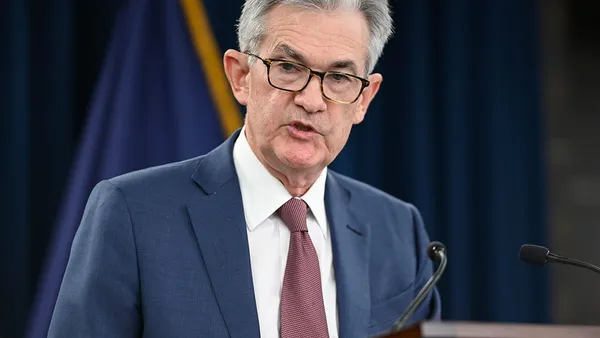Dive Brief:
- Mergers and acquisitions spurred by regulatory pressure to disclose environmental, social and governance (ESG) performance surged 111% during the first half of 2022 compared with the same period last year, Hampleton Partners said.
- M&A targeting companies that provide ESG software, software-as-a service, consulting and outsourced services hit the highest level since at least 2017 even as rising inflation, pandemic lockdowns, financial market turmoil and Russia’s invasion of Ukraine prompted a 21% slump in worldwide deals during the first six months of 2022 compared with the same period last year.
- “Requirements from regulators reflect a deeper public sentiment of environmental and social consciousness,” according to Lolita White, a senior analyst at Hampleton, a deals advisory firm for technology companies. “Software and services companies will continue to emerge out of this market opportunity, and those which see sustained growth and quickly become profitable will undoubtedly become M&A targets.”
Dive Insight:
An intensifying debate among C-suite executives, regulators, asset managers, investors and lawmakers over the benefits and costs of ESG measurement and regulation will likely encourage the emergence of ESG-focused companies in coming months, Hampleton said in a report.
“It is our belief that these debates will amplify the need for accurate and robust disclosure, thus spurring more active regulation with increasingly granular requirements,” Hampleton said. “In turn, this will open many doors for ESG software and service providers helping customers navigate the ever-changing ESG landscape.”
The EU has mandated that 49,000 companies across the region must begin sustainability reporting next year.
Meanwhile, the Securities and Exchange Commission is drawing up a rule that would require U.S. companies to regularly file detailed disclosures on climate risks, including their carbon emissions and those of their energy suppliers.
Investors with $130 trillion in assets under management want companies to disclose their climate risks, SEC Chair Gary Gensler has said, adding that both businesses and investors will benefit from clear, uniform reports on the costs from global warming.
“While everything seems to point to the advent of a new age of regulatory scrutiny and corporate responsibility in the race to net-zero and other goals, businesses’ ESG reporting is not yet up to scratch,” Hampleton said.
CFOs who currently report on sustainability must choose from several competing sustainability reporting frameworks that vary in detail and scope.
“Companies and stakeholders have struggled with the myriad of sustainability standards, frameworks and metrics for ESG reporting,” according to Hampleton.
Rising pressure for consistent, uniform rules for ESG disclosure prompted the launch of the International Sustainability Standards Board (ISSB) at the COP26 climate conference in Glasgow last year.
The ISSB has proposed two disclosure standards, drawing from several current reporting frameworks, including from the Climate Disclosure Standards Board, the Task Force for Climate-related Financial Disclosures, the Value Reporting Foundation’s Integrated Reporting Framework, Sustainability Accounting Standards Board and the World Economic Forum’s Stakeholder Capitalism Metrics.
“It will take time to establish these reporting norms internationally, so we anticipate that businesses across all industries will face the issue of granularity and complexity in ESG compliance a while longer,” White said in an email response to questions.
A company that reports on sustainability can yield big gains, White said.
“Careful and accurate ESG reporting could help win customers, attract and retain talent, reduce costs and increase efficiency, and minimize risk and reputational damage,” she said. “ESG-compliant firms looking to raise funds are less likely to have to concede risk premiums as investors consider them opportunities for cost savings, revenue generation and risk mitigation.”
At the same time, companies in the growing ESG subsector will likely become targets of M&A by “industry players expanding their ESG product suite, enterprise software providers keen to bolt on additional ESG capabilities and outsiders keen to get a foot in the door of a hot industry,” White said.
The number of deals involving ESG-related companies rose to 93 from January to June this year compared with 44 during the first half of last year and 36 during the first half of 2019, Hampleton said.













